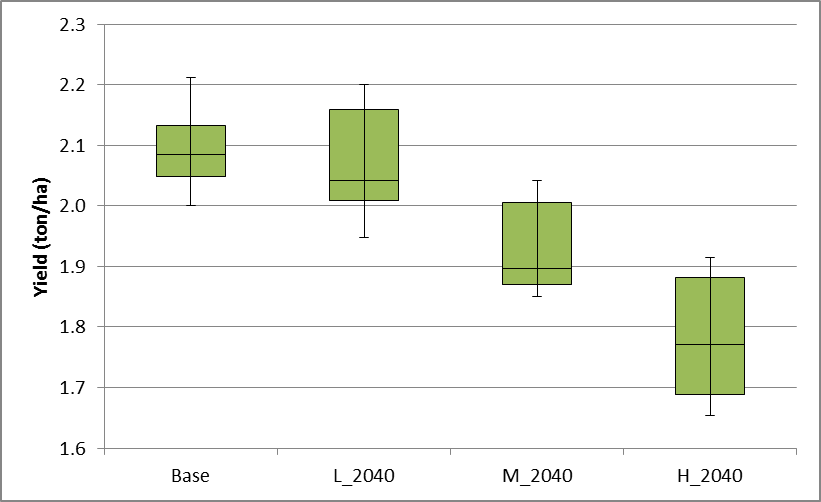The project prepares robust climate mitigation and adaptation pipelines aligned with the Paris Agreement and responsive to DMCs climate change priorities. The TA will support interventions on departmental, sectoral and country levels with key activities including development of a regional strategy, upstream climate assessments, climate pipeline development, government dialogues and capacity building. As part of this project, FutureWater conducts a regional climate risk assessment for ten countries. This includes an assessment of baseline and future climate hazards, exposure and vulnerability and addressing sectoral impacts and adaptation options for a wide range of sectors. In addition country profiles summarizing climate risks for the ten countries are generated. The reginal climate risk assessment feeds into the climate strategy.
Agriculture continues to be critical for poverty reduction, employment, economic growth and food security in Europe and Central Asia (ECA). Agricultural production, processing, and related services remain an important source of income in many ECA countries (approaching 30% of GDP in Central Asia). However, the agricultural sector is highly climate sensitive and potential adverse changes in temperature, precipitation and the frequency of extreme events as a result of climate change are likely to increase the vulnerability of poor rural communities. The World Bank’s ECA Region is working with client countries through an innovative regional, multi-year program of analytical and advisory activities (AAA) on reducing vulnerability to climate change in ECA agricultural systems.
This study contributes to the agriculture sector climate change impact assessment and adaptation and mitigation strategy identification and evaluation. The study encompasses the three countries of the Southern Caucasus region: Armenia, Azerbaijan, and Georgia. The project also includes components for capacity building among in-country staff, and support of the World Bank team’s awareness raising, communication, and dissemination goals for climate change.

Impact of climate change on wheat yield in Armenia based on Aquacrop in 2040-2050. Base = current situation; L, M, H are Low, Medium and High climate change scenarios
FutureWater undertakes the analysis using AquaCrop for the most important crops in the region. Impact assessment and potential adaptation strategies have been assessed. Capacity building and awareness rising have been an integrated component of the activities.
